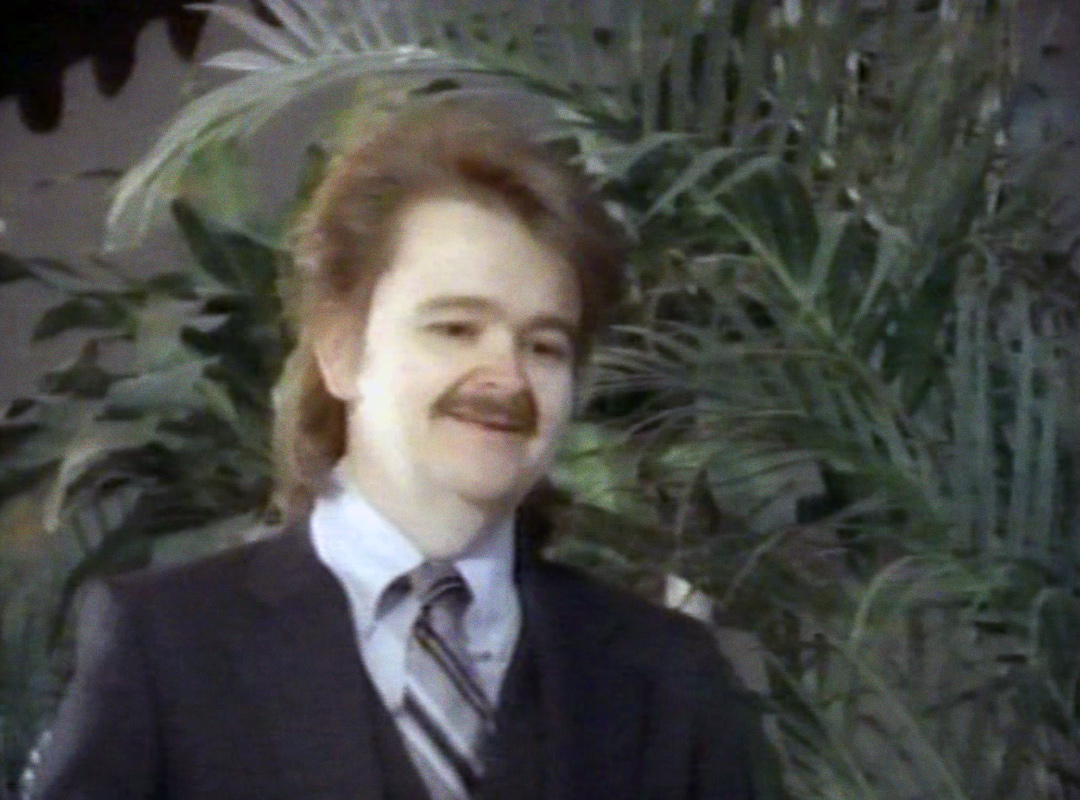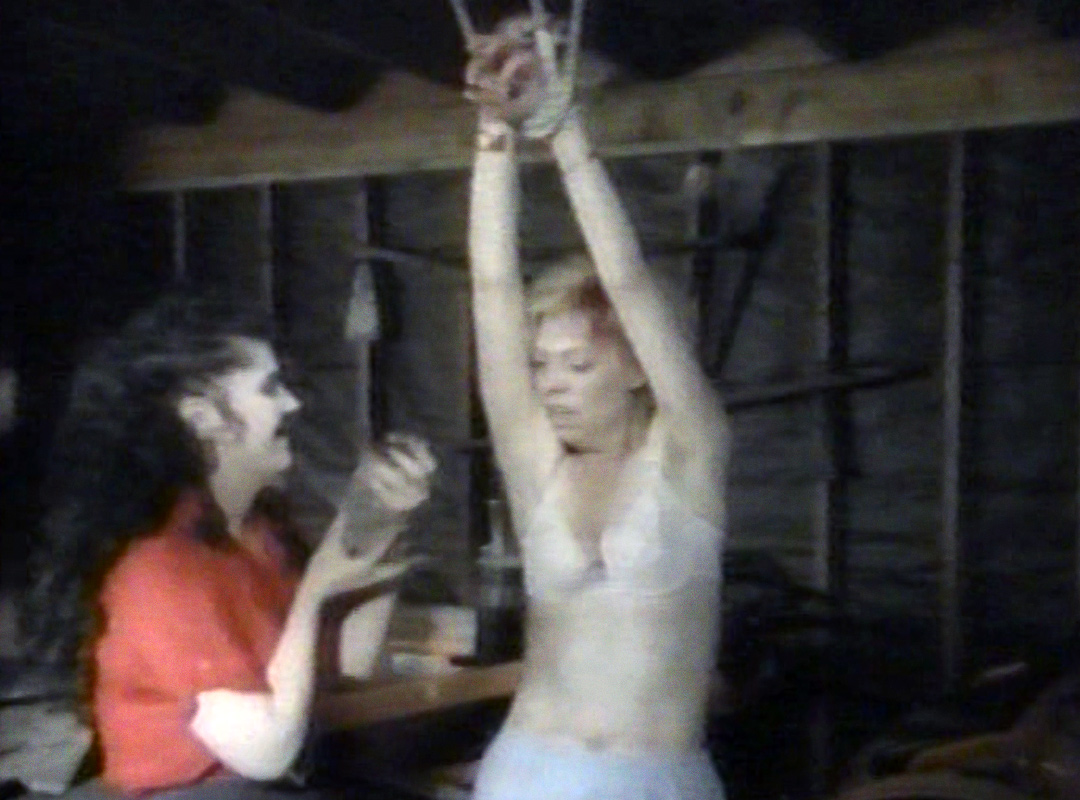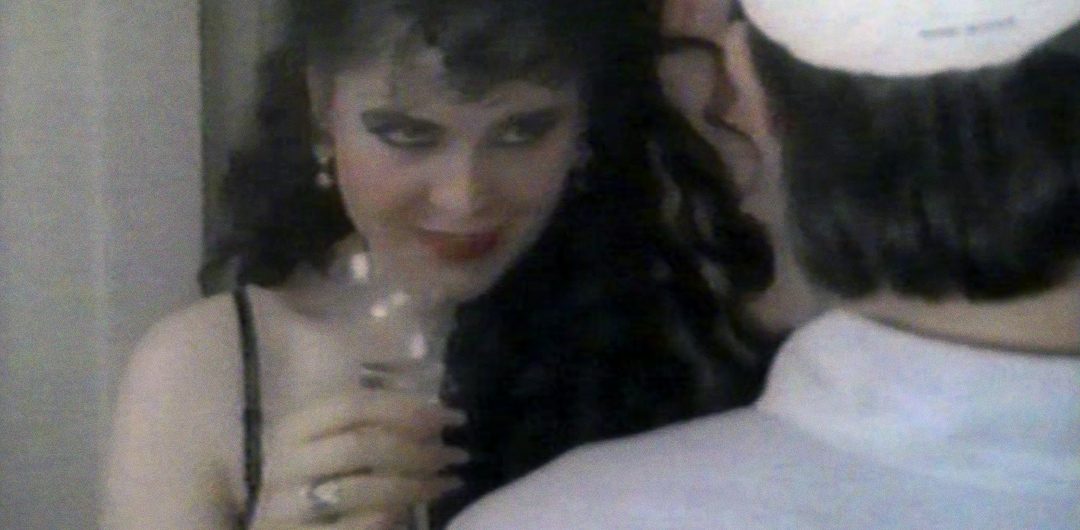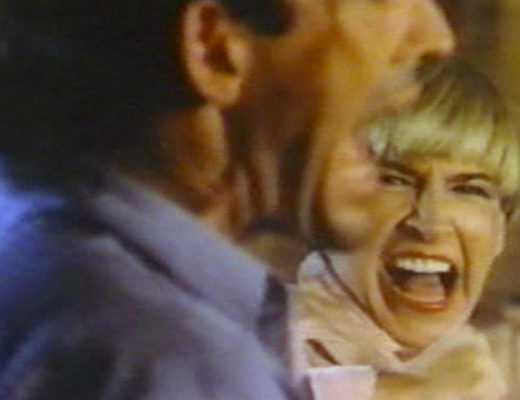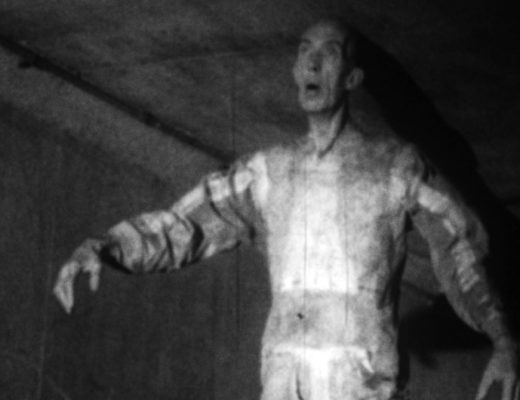Mothers. Everyone has at least one.
Of course, not all moms are good—there’s a spectrum. On one end, there’s Joan Crawford from Mommie Dearest and on the other end, there’s Carol Brady. Somewhere in the middle there’s Norma Bates, Pamela Voorhees, Peg Bundy, Sarah Connor, and my own mother, who once asked me, “What’s wrong with your face?”
There’s also the mom in Epitaph.
Mom, Dad, Grandma, and sixteen-year-old Amy move into a new house. They’ve been moving constantly from city to city and this just might be their forever-home. It’s a beautiful mansion with plenty of space and an idyllic garden that’s big enough for Grandma to plant her turnips. I happen to love turnips, thanks for asking.
But not everything’s right at home. Mom has a drinking problem. She drains her chardonnay, dons her finest nightgown, and makes a pass at the house painter.
“Do you have a girlfriend?”
“Yes.”
“Is she beautiful as I am?”
“She’s . . . alright.”
Despite his girlfriend only being a 4, he rebuffs Mom’s advances. So she does what any drunk, horny mom would do. She sticks a knife in his chest. And also his back.
Dad ends up burying the corpse amongst the turnips. This isn’t his first rodeo. Or his second. Or his third. And now we know why they’ve been moving so much. It’s a family secret they’ll take to their graves—their very shallow graves.
Mom spends most of her time drinking and watching her unhappy family eat pancakes. She bosses Grandma around, sneers at Dad, and harps on Amy, correcting her grammar and complaining about the sorry state of her public education. Mom stirs her bloody mary and glares at her daughter across the kitchen table. “Don’t drink when you eat; don’t you know it’s bad for you?” Amy profusely apologizes while Grandma and Dad stare at their pancakes in silence. The entire family walks on eggshells around this merlot-soaked monster who whines relentlessly that no one loves her. The truth is, she’s right. No one loves her because she’s a drunk asshole, but it’s hard to say if her drinking is making her a bad mother, or if it’s actually making her a worse mother. She forbids Amy from talking to any boys at school. “They only have one thing on their mind.”
Amy, of course, falls in love with the school stud. He teaches her how to play tennis.
Soon a man gets a pickaxe to the back, another falls out of a window, and a rat eats through someone’s abdomen. Someone else gets doused by gasoline and guess who’s holding the match? Mom is on a drunken rampage and no one is spared, not even Grandma. Now Amy must escape this nightmare, but first we must take a trip to the mall.
Epitaph has dramatic flair—there’s dramatic eye makeup, dramatic hair, dramatic hats, dramatic slapping, and a dramatic cigarette holder that’s shaped like a dragon. The performances are simultaneously over-the-top and narcoleptic. Delores Nascar pushes Method acting to its very limits and chews up the scenery as the mother; she steals every scene with her fiery hatred. But the other actors are far more wooden and sleepy. The script and its melodramatic twists and turns and histrionic dialogue feels somewhere between an episode of Dynasty and a John Waters production. This is a compliment. The film does lull and sputter in the second act when the narrative stalls, but then the final half hour escalates triumphantly.
Epitaph is written and directed by Joseph Merhi and edited by Richard Pepin, two titans of the direct-to-video market. Together they’ve pumped out hundreds of films, many of which star Wings Hauser, the one true king and the only reason to live. Epitaph deserves a spotlight in the expansive PM Entertainment catalog, but more importantly, we now have another cinematic bad mom to come home to.
